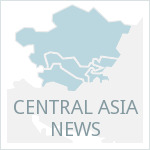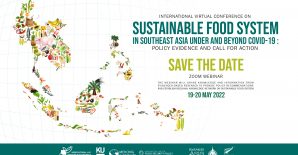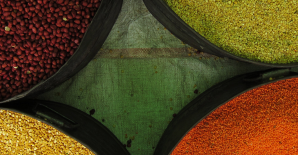News
On June 1, Kazakhstan to remove restrictions on food exports
Kazakhstan was one of the first countries to impose export restrictions on food products in response to the COVID-19 crisis. Those restrictions were first imposed on bans on certain items, like flour, but some were later changed to quotas after complaints by domestic producers. Now, citing a decrease in the magnitude of the crisis, the Ministry of Agriculture plans to lift all export restrictions and bans on June 1. - kazinform
USAID Commits $2 Million to Address the Needs of Central Asian Migrants Impacted by the COVID-19 Pandemic
The COVID-19 crisis has posed extraordinary difficulty for Central Asian migrants. Due to travel restrictions, many migrants found themselves stuck without work in Russia and elsewhere, unable to travel home. Additionally, the crisis has stifled the flow of remittances to dependent families. In light of such issues, USAID has committed $2 million through the Safe Migration in Central Asia project to protect migrants in Central Asia. The aid will contribute to informational resources, referrals to essential services, alternative livelihoods support, and skills training to assist migrants. - U.S. Embassy in Uzbekistan
The United States Announces Additional Funds for Uzbekistan's Fight Against COVID-19
USAID has announced an additional $3 million in funding to assist Uzbekistan in a comprehensive response to the COVID-19 pandemic. The funds will support the provision of consultation and technical assistance to prevent the spread of infections, engagement with local communities, and the delivering of accurate information to vulnerable populations to prevent misinformation. - U.S. Embassy in Uzbekistan
Analysis & Related Information
COVID-19 Analyses: IFPRI Blogs
IFPRI is facilitating an ongoing blog series to discuss COVID-19 as it relates to food security and development at the global, regional, and country levels. Though some concern specific countries, the insights are applicable to others as the world collectively experiences the impacts of the pandemic. This week, IFPRI researchers discuss findings from phone surveys taken in Addis Ababa, Ethiopia regarding food security in the city. Although country-specific, their insights may apply elsewhere.
IFPRI Virtual Events
IFPRI has been hosting virtual events to discuss various issues related to food and agriculture policy. Videos like this will periodically be posted publicly after being streamed live, and will include presentations from researchers, discussion between researchers, and Q&A. This week's first seminar will take place tomorrow, and discusses the 2020 Global Food Policy Report for Eurasia (detailed information can be found in the Events & Announcements section. Another event on Wednesday will discuss how we can "re-orient food systems and healh systems to protect nutrition and healthy diets in the context of COVID-19." - IFPRI
Publications & Reports
Business training for women entrepreneurs in the Kyrgyz Republic: evidence from a randomised controlled trial
Chong, A., Velez, I. 2020. Journal of Development Effectiveness, Early Online Version.
Climate change in Central Asia: Sino-German cooperative research findings
Yu, Y. et al. 2020. Science Bulletin, Volume 65, No. 9, pp. 689-692.
Covid-19 and Food Protectionism : The Impact of the Pandemic and Export Restrictions on World Food Markets
Espitia, A. et al. 2020. Policy Research Working Paper No. 9253, Washington D.C.: World Bank Group.
The linchpin of Eurasia: Kazakhstan and the Eurasian economic union between Russia’s defensive regionalism and China’s new Silk Roads
Pieper, M. 2020. International Politics, Early Online Version.
The Sooner, the Better : The Early Economic Impact of Non-Pharmaceutical Interventions during the COVID-19 Pandemic
Demirguc-Kunt, A. et al. 2020. Policy Research Working Paper No. 9257, Washington D.C.: World Bank Group.
Useful Links & Commentaries on Research Methods, Data & Publications
A Tool to Estimate the Net Health Impact of COVID-19 Policies
Damian Walker, Y-Ling Chi, Florian Poli, & Kalipso Chalkidou. 2020. Center for Global Development.
How do the revised 2011 PPPs and new 2017 PPPs affect the World Bank’s global poverty estimates? A first look
Samuel Kofi Tetteh Baah et al. 2020. Data Blog, World Bank Blogs.
The Insights and Illusions of Consumption Measurements
Battistin, E. et al. 2020. Policy Research Working Paper No. 9255, Washington D.C.: World Bank Group.
Events & Announcements
IFPRI Virtual Event--Discussion on the Implications of the 2020 Global Food Policy Report for Eurasia
Due to COVID-19, IFPRI is periodically hosting virtual policy seminars to allow direct engagement with researchers and to convey analysis about related issues. These seminars include presentations, discussions, and Q&A. Tomorrow, May 27, a seminar discussing the 2020 Global Food Policy Report as it relates to Eurasia will take place, co-organized by IFPRI, the World Bank, Westminster International University in Tashkent, and the Eurasian Center for Food Security at Lomonosov Moscow State University. The discussion will include speakers from each of the aforementioned organizations, including the IFPRI Central Asia Program's own Dr. Kamiljon Akramov. Start times are: 7:30am EST, 2:30pm Moscow, 4:30pm Dushanbe & Tashkent, 5:30pm Bishkek & Almaty. Please follow IFPRI on Twitter to receive notice of future seminars.
Virtual Seminars on Applied Economics and Policy Analysis in Central Asia
IFPRI, Westminster International University in Tashkent, and the Lebniz Institute of Agricultural Development in Transition Economies (IAMO) will continue to host weekly seminars on topics related to applied economics and policy analysis in Central Asia. They will take place on Wednesdays, at 7:30am EST, 2:30pm Moscow, 4:30pm Dushanbe & Tashkent, 5:30pm Bishkek & Almaty. For more information and registration, visit the link.
Call for Proposals: Case Studies on Food Policy and Nutrition in the Eurasian Region
Researchers from Armenia, the Kyrgyz Republic, Russia, Tajikistan, and Uzbekistan are invited to apply for participation in a case study competition organized by the World Bank and the Eurasian Center for Food Security. Specifically, proposals for case studies concerned with the impact of COVID-19 on food security and nutrition in Eurasia are requested. Applications will be accepted until May 31, 2020. For detailed information on guidelines, requirements, etc., please follow the link. You may also register for a Q&A session, which will take place on May 25 at 15:00 Moscow time.
Virtual AFE Seminar Series
A virtual seminar series organized by John List of the University of Chicago Department of Economics and Robert Metcalfe of Boston University's School of Business is being hosted weekly on Zoom. Each seminar will include a research paper presentation and Q&A, starting at 12pm EST on Wednesdays. Follow the link to view the full schedule of presenters and to sign up for invitations to the live seminar. Presentations will also by uploaded to a YouTube playlist. This week's presentation will be delivered by Princeton University's Dr. Janet Currie, who will be presenting "Can Mentoring Help Female Assistant Professors in Economics? An Evaluation by Randomized Trial"
Online Agriculture and Resource Economics Seminar
Dr. Marc F. Bellemare and PhD candidate Jeff Bloem will be hosting a weekly (Wednesdays, 11am CST) online seminar to discuss various research topics related to agricultural economics, nutrition, and food security. For example, the next seminar on May 27 includes a presentation of the paper, "Does the Use of Specialty Varieties Benefit Farmers? Evidence from Cacao in Ecuador" by Alexis H. Villacis. Follow the link for registration information and a schedule of upcoming seminars.
Development Policy and COVID-19: eSeminar Series
The World Bank's Development Research Group is hosting an online seminar series for discussions on development policy as it relates to COVID-19. The seminars are completely public, do not require an application or sign-up, and will continue for the foreseeable future.
If you would like us to add your colleagues to our mailing list, please direct them to the following link.
The articles included in this news digest have been generated from online sources. Any opinions stated herein are not representative of, or endorsed by, the International Food Policy Research Institute or its partners.



